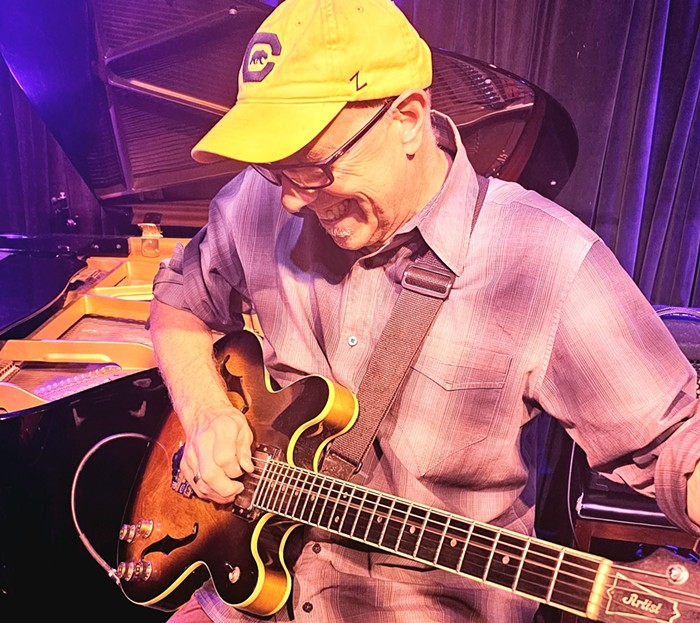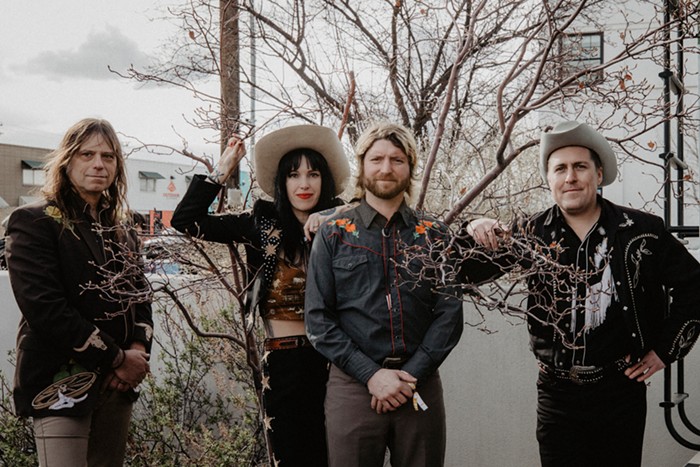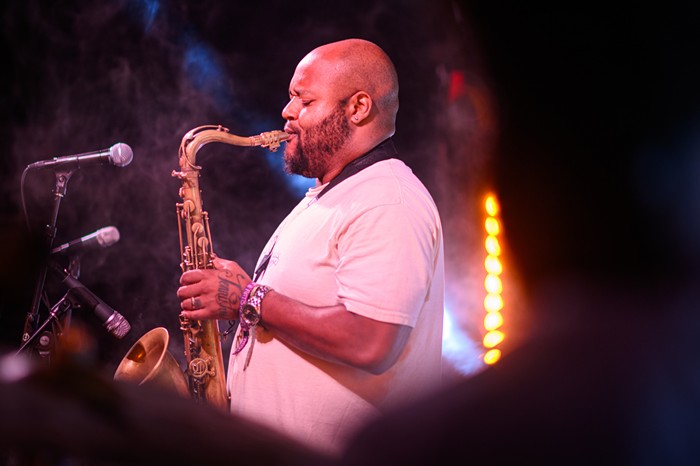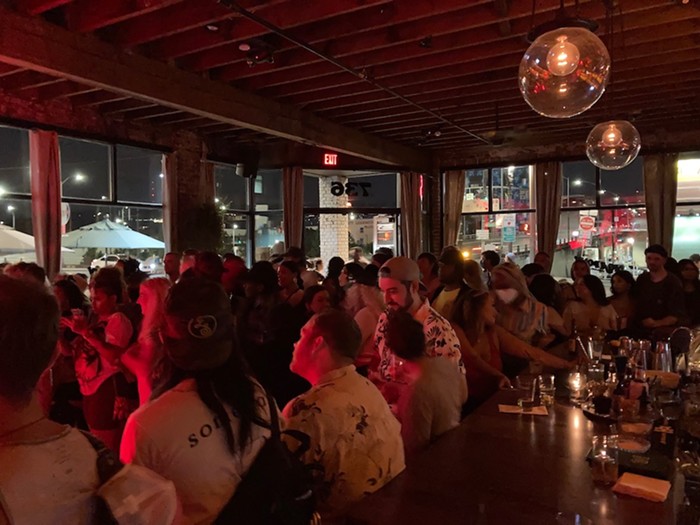Arriving just after 9:30 pm at the surprisingly sparse Roseland entrance, it was difficult to swallow the sickening, shameful realization that immediately clouded around me: I am a 24-year-old man, alone, lingering nervously outside of an Ashlee Simpson concert. No amount of under-population could possibly keep me from feeling like a total pedophile.
Following what very well may have been the most painful five minutes of my adult life, I was finally joined by my fellow Ashlee compatriot, and we quickly made our way up toward a splendorous land of bizarre adolescent fantasy: the teen pop concert. Reaching the top of the stairs, all of my public pathos for Ashlee Simpson was immediately revived, as the Roseland—with a 1,000-plus capacity hardly befitting a pop star who just last year sold over three million records—was scarcely half full. Granted, the show had been met with a surprising lack of promotion considering its $32.50 ticket price, but the message the excited shopping-mall-fashion-show-sized crowd sent was abundantly clear: The tragedy that is Ashlee Simpson's career had once and for all been realized.
Of course, none of this was about to hinder young Simpson, the consummate performer, from effectively playing out her strangely sincere rock-star fantasy with road-worn prowess. Her hair now a ratty blonde—a stylistic re-imagining already reflected on the $30 T-shirts for sale at the merchandise booth—Ashlee tunelessly rasped her way through less than an album's worth of songs in a mercifully short set peppered with frequent instrumental interludes (read: Nexium bump breaks). As utterly surreal as it was seeing a mini-mega-star like Miss Simpson perform in the flesh, it was the pin-up-worthy (and completely wireless) pop punks comprising her band that really tipped the scales: the drummer needlessly singing every word behind an awkward wall of plexiglas, the amped bass player fruitlessly attempting to "lock into the groove" in spite of said plexiglas barrier, the in-ear monitors across the board—all so amazingly stifled and bizarre. The total clincher, however, was the two-song, mid-set spotlight on effeminate tour keyboardist/new Joe Simpson signee Chris Megert. Megert's performance—which my companion suggested was reminiscent of a "whiter Elton John"—marked the apex of our emotional lows, as it yet again suggested Papa Joe's shameful willingness to pimp his docile daughters for profit. There truly is nothing like feeling sorry for a pop star. Magic!
My night with Ashlee complete, I feel that I have finally satisfied the daunting empathies that have for so long played out in these pages—and may I never write about it again.


















